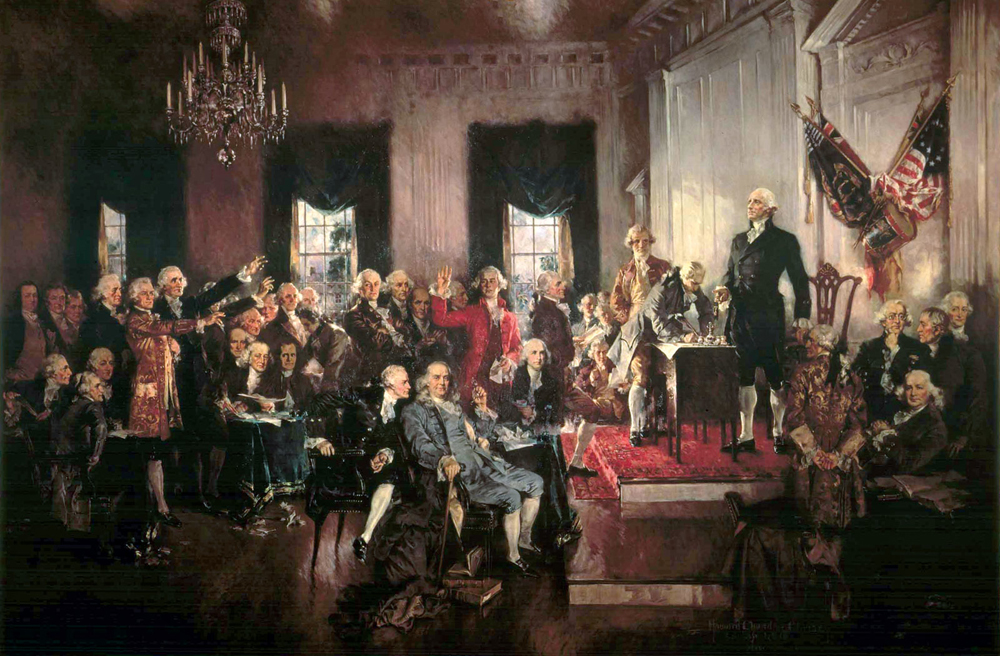“Oz has elected a bigoted air-head to drag them backwards into mean prejudice and vainglorious chauvinism” – Paul Flynn, UK Labour Party MP
“It’s not goodies versus baddies; it’s baddies versus baddies.” – Tony Abbott on the Syrian conflict
For those dismayed by its results, the most galling aspect of the 2013 federal election is not that the conservatives won. Neither, for those of us removed from the partisan hysteria of the ALP, is it the spectre of prime bogeyman Tony Abbott becoming prime minister. Rather, the most frustrating thing is the way that the election has been decided, fought on simplistic arguments about national debt, asylum seekers and the carbon tax.
Certainly, the departing government was far from perfect. Four leadership spills and two changes in prime minister over the course of six years gave the ALP a deserved reputation for internal instability; a few failed schemes from the early stages of Kevin Rudd’s stewardship contributing to a perception of ineptitude. For conservatives, Julia Gillard’s much-misunderstood promise not to institute a carbon tax was seized upon as clear evidence of deceit; for progressives, Rudd and Gillard’s aloof conservatism was trumped only by their willingness to throw refugees, same-sex couples and civil liberties under the bus for the sake of right-wing votes.
For all its faults, however, the Labor Party can claim to have governed competently. This includes, most significantly, having assisted the country to emerge from the global financial crisis relatively unscathed; likewise, successfully negotiating the difficulties of a hung parliament. By most objective standards, they have left the economy in an excellent position, with national debt and unemployment figures kept in check. The Gonski education reforms, introduction of the National Broadband Network and National Disability Insurance Scheme are all policies that, if maintained, should have long-lasting positive effects on Australian society.
Given that, it is ironic that the opposition chose to wage their campaign primarily on supposed Labor incompetence. These claims were, with few exceptions, highly dubious: that refugee boat arrivals had reached unmanageable levels; that the country’s debt was significant, and attributable to government profligacy; that the carbon tax, a fairly unexceptional market-based scheme for addressing climate change, was an extreme policy whose annulment was worthy of being the “first priority” of a new government.
Confronted with arguments such as these, a highly-educated populace would not only have remained unconvinced; it presumably would have severely punished the proponents at the polling booths. The fact that the exact opposite has occurred, therefore, is profoundly troubling. Certainly, it is hard to avoid the conclusion that Australian voters are too easily manipulated.
Such is democracy, though. Educated opinions on science, economics and foreign policy are and always have been considered secondary to the construction of a good narrative; a three-word slogan given more weight than a dozen peer-reviewed papers. No higher authority is required for a mandate than mere popularity. We might well ask ourselves whether this is the best possible method of running a country.
Egalitarian democracy is founded upon the premise that all adult citizens deserve an equal say in electing representatives and, by proxy, creating laws. As such, it is arguably the freest, least oppressive, political system ever adopted on a national scale. It is a privilege that we should neither take for granted nor question glibly. That does not, however, mean that our current system ought to be considered above critique. There are, after all, few more fundamentally important topics of debate than the way in which a society should be organised.
Given that Australian democracy appears to
be decidedly imperfect, we might ask ourselves the following questions: is the election of substantially inferior candidates merely an unavoidable drawback of an otherwise ideal system, or is it a problem that can be satisfactorily resolved? If the latter, how might we go about it?
The most apparent problem is that there are people in our society who are far more adept – through intelligence, level of formal education, personal experience or political engagement – at judging what might constitute a better government than others. If one accepts that premise, it is at least superficially true that giving such people more of a say would lead to a better-run, more intelligent society. If we accept that the latter is a worthy aim, the challenge is to propose an appropriate way of achieving it.
Firstly, removing suffrage from groups or individuals is clearly undesirable. It would be hard to see such a move as anything more than a one-way ticket to oppression and social stratification. Furthermore, on a purely pragmatic level, setting a bar at a certain level would inevitably lead to mass disenfranchisement and, quite possibly, social unrest. A slightly less problematic alternative might be ‘weighting’ votes according to various metrics, although it goes without saying that such a process could potentially open up new avenues of corruption as well as significant logistical problems.
Perhaps, though, this is the wrong focus. Rather than entrenching inequalities by advocating elitist electoral policies, we would do better trying to work out how to build a more intelligent, educated and critically-minded body politic. That is a point that we should surely all agree on.
People cannot always be expected to know what is in their own best interests. That will always be the case. Unless we can find a workable means of improving the system – and we should not be inhibited from trying – we have to work within its parameters. Until then, it is a truism that an important part of the education process is learning from mistakes. Let us hope that, this time around, the lesson is not too painful.
David Heslin

